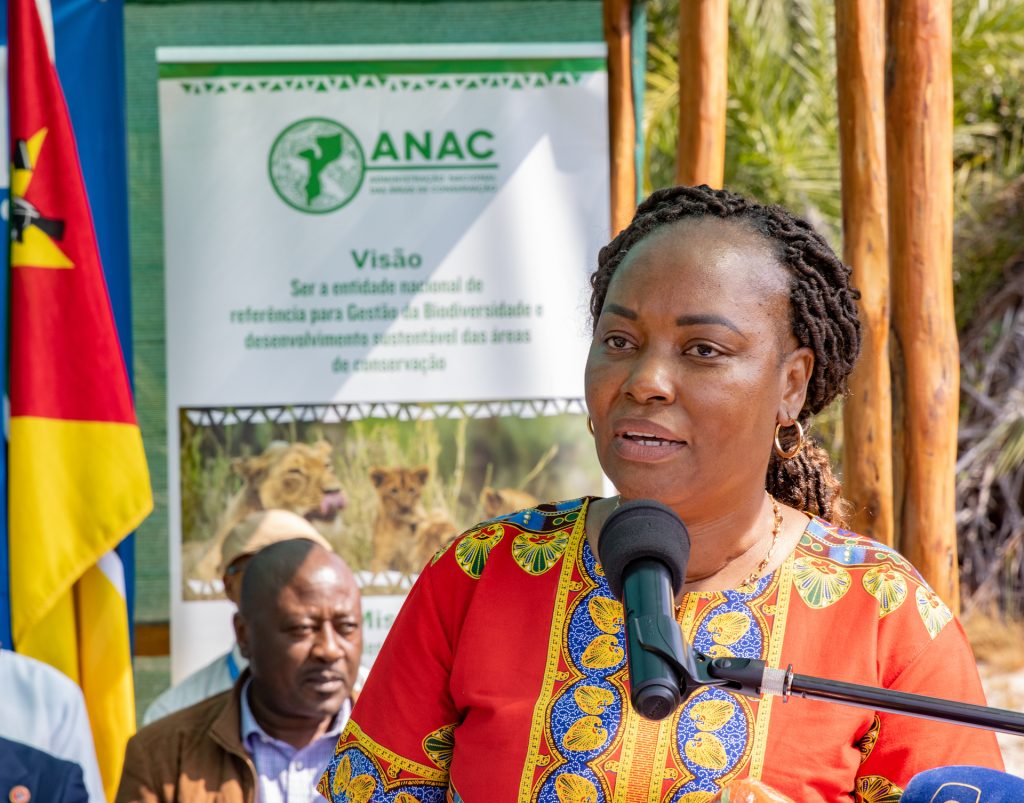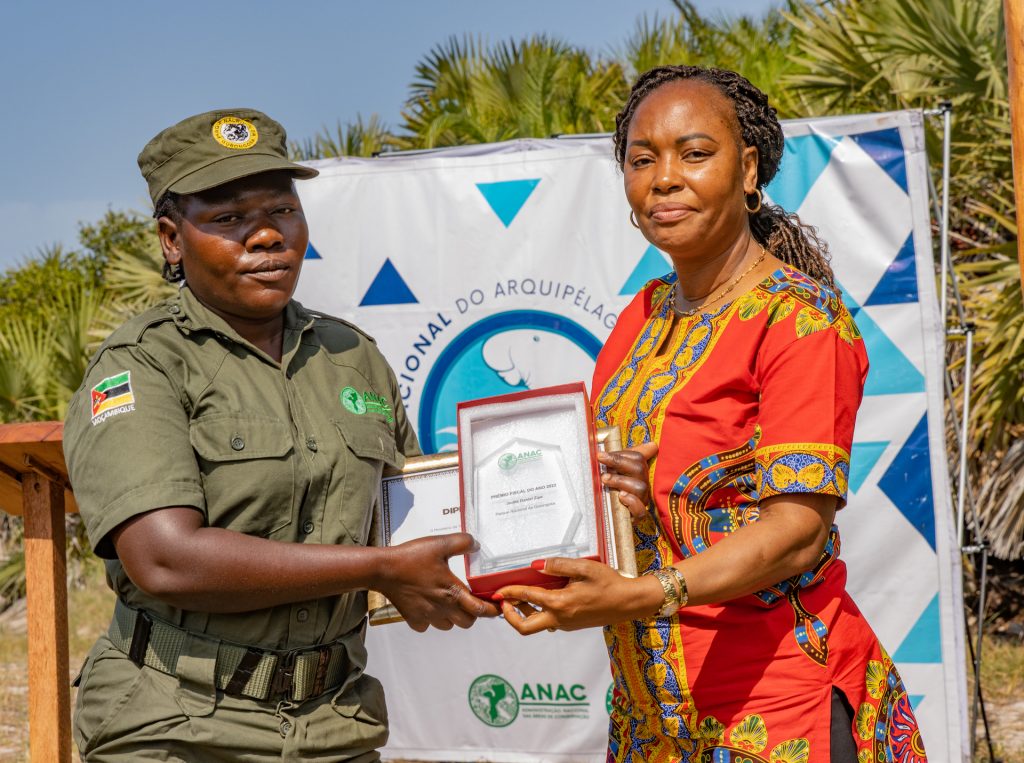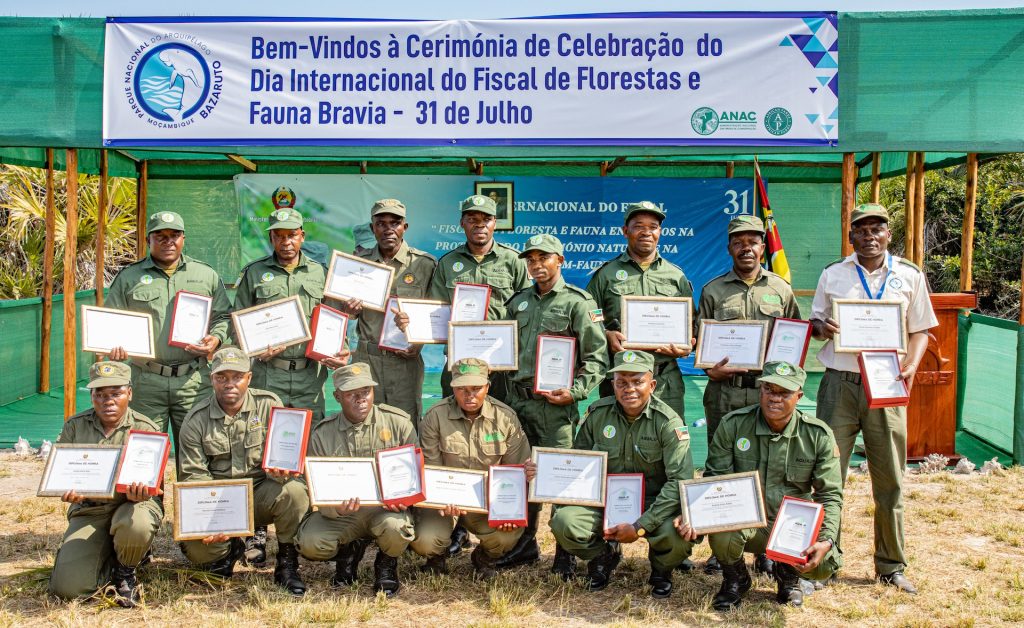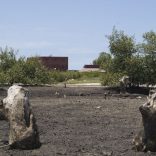Blue Forest is planting 40 million mangrove trees in central Mozambique
Mozambique: About 70 conservation rangers killed by animals, poachers since 2020 – government

Photo: ANAC
About 70 forest and wildlife rangers have died since 2020, on duty, in protected areas in Mozambique, namely in attacks by animals and poachers, in a total staff of around a thousand professionals, according to figures presented by the government.
“The challenges are enormous,” recognised the minister of land and environment, Ivete Maibaze, after inaugurating the management infrastructure of the Bazaruto Archipelago National Park for these rangers on Monday in Inhambane province.
“They are the ones who have given their lives for us, for the conservation of several emblematic species that our country has. Since 2020 alone, we have lost about 70 rangers. Which is a lot for us, looking at what is the staff of about a thousand rangers that we have “, Mabaze added, in an address also marked by the celebrations of World Ranger Day. World Ranger Day is celebrated worldwide on July 31st to commemorate Rangers killed or injured in the line of duty and to celebrate the work Rangers do to protect the planet’s natural treasures and cultural heritage.

Mozambique has 14 important ecological regions, some of which are considered of global importance. The national network of conservation areas covers approximately 26% of the country’s territory and comprises 19 national parks and reserves, 20 official hunting grounds, and a variety of other categories of conservation areas, whose monitoring is ensured by these rangers.


The Head of Law Enforcement and Anti-poaching at Mozambique’s National Administration of Conservation Areas (ANAC), Carlos Lopes Pereira, acknowledged in 2018 that the country needed to have about 2,500 rangers at its service, first and foremost to combat poaching, and that with the staff numbers then, slightly higher than today, each of these professionals took care of 315 square kilometres, against a recommended area of 50 square kilometres.
The construction work inaugurated on Monday by Minister Ivete Maibaze in the Bazaruto Archipelago National Park represented an investment of 39 million meticais (560,000 euros), including rooms and changing rooms for the rangers, an office with reception for visitors, a cafeteria, warehouses and a solar panel power plant.
The minister stressed that the achievement of this milestone stems from the government’s strategy of promoting public-private partnerships for co-management and development of the national network of conservation areas, aiming at the sustainability of biodiversity management and capitalisation of revenue-generating mechanisms.
“It was in this perspective that, in December 2017, we signed the co-management agreement with African Parks, for the management of the Bazaruto Archipelago National Park”, she recalled.
In the field of strengthening the inspection capacity, the minister highlighted the improvement of the communication system, with the introduction of digital radio technology and the implementation of monitoring systems in different conservation areas, as well as the implementation of the Forest Information System, also ensuring that the training and education of more than 300 forest and wildlife rangers will advance.












Leave a Reply
Be the First to Comment!
You must be logged in to post a comment.
You must be logged in to post a comment.